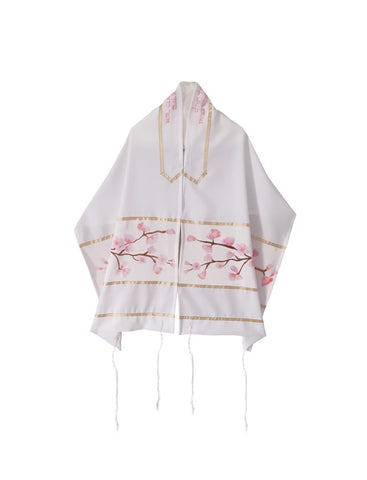Tallit for Rosh Hashanah- Know these top 7 Rosh Hashanah facts
Rosh Hashanah marks the beginning of the Jewish New Year that falls on the first and second days of the Jewish month of Tishrei, at the end of the summer. But many Jews want to know as they prepare for the High Holidays such as Rosh Hashanah, should they wear tallit for the occasion? As per the Jewish traditions and rituals, just like your head (brain) tells your body what to do and how you behave, your actions on Rosh Hashanah have a tremendous impact on the rest of the year. So the answer to the question is, yes, every Jewish person needs to wear a tallit. Just like the custom on Shabbat, on Rosh Hashanah, Jewish people should only wear a tallit during the morning services.
Let’s find out some interesting facts about this Jewish holiday that every Jew should know. Read on to know:
- Rosh Hashanah is considered one of Judaism's highest holidays, which is celebrated on the first day of Tishrei, the seventh month of the ecclesiastical year. It is a two-day festival that typically falls sometime between September 5th and October 6th.
- On the very first Rosh Hashanah, God judged and forgave Adam and Eve for the sin committed by them in the Garden of Eden. Based on this incident, it was decided that the day will be known as “The Day of Judgement” for all of mankind. As the tradition perceives it, Adam and Eve were judged and forgiven by God on this day, and therefore, their descendants will be judged and forgiven on this day.
- The word, “Rosh Hashanah” is not cited in the Torah. Instead, this major Jewish holiday is referred to as Yom Teruah (Day of Sounding the Shofar) and Yom HaZikaron (Day of Remembering). The shofar (Made from a hollowed-out ram’s horn) is blown in order to arouse the people to repent and change their ways.
- There is a tradition at Rosh Hashanah to eat symbolic foods that have special meanings pertaining to the festival. For instance, in Ashkenazi tradition, apples are dipped in honey in the hope of a fulfilling year ahead. Moreover, many Jewish traditions also have the custom to recite special blessings before eating the symbolic foods, referring to the special meaning that each food carries.
- On Rosh Hashanah, Jewish people greet each other with a special greeting, “Shana Tova,” meaning, “A Good Year,” i.e. you should have a good year.
- When eating the Rosh Hashanah meals, there is a custom of placing a fish head on the festive table. Since ‘Rosh Hashanah’ translates literally as ‘Head of the Year,’ eating a fish head on this festival symbolizes starting out your year as the head [or leader] and not the tail [or follower]. Similarly, the presence of a fish head on the table is a sign of ensuring that 365 days will be filled with good fortune.
- As per Jewish traditions and customs, Rosh Hashanah meals should be eaten in the cheerful glow of candles, which must be lit by the women or girls of the house. On the first day of the festival, the candles are lit before the onset of the sunset and on the second night, the candle is only lit after the nightfall. Remember to use a preexisting flame and not blow out your match when done.
Bottom Line
Whether it is Rosh Hashanah, Yom Kippur, Sukkot or any other major festival in the Jewish calendar, at Galilee Silks, you can find a vast range of tallit for every occasion at an affordable price. While purchasing any tallit, you can rest assured that they are made from the best quality materials in various designs and patterns. Visit the one-stop online shop today!



